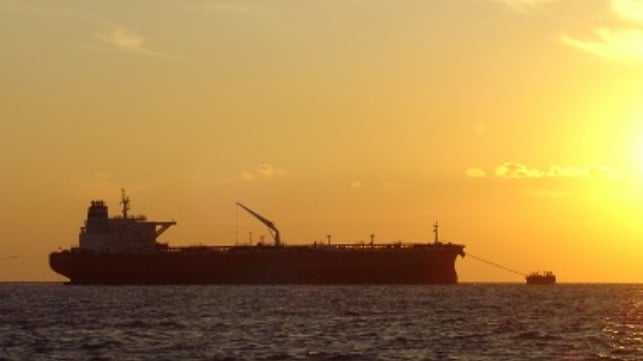Ukrainian Drone Attack Damages CPC Pipeline

A Ukrainian drone strike in Krasnodar has reduced the capacity of the CPC pipeline from Kazakhstan to the Black Sea, according to Russian and Ukrainian sources.
The Caspian Pipeline Consortium (CPC) is a U.S.-British-Italian-Russian-Kazakh pipeline partnership that transports Kazakh oil through Russian territory to a single-point mooring terminal at Novorossiysk. It has a nameplate capacity of about 1.5 million barrels a day, equal to roughly two percent of the global seaborne-traded oil supply.
CPC confirmed that seven explosives-laden drones attacked the Kropotkinskaya pumping station on Sunday night, the pipeline's largest station within Russia. The strike took the station out of service; while the line has not fully shut down, "crude transportation through the Tengiz-Novorossiysk pipeline system is being maintained at reduced flow rates," CPC said.
Overnight, Ukrainian attack drones successfully struck two major Russian oil installations in Krasnodar Krai.
— OSINTtechnical (@Osinttechnical) February 17, 2025
Early in the evening, seven Ukrainian drones struck the Kropotkinskaya pumping station, the largest on the Caspian Pipeline, reportedly slashing total system capacity. pic.twitter.com/3IQPFXTO8W
Ukrainian drones cripple Russia’s largest Caspian Pipeline pumping station, Kropotkinskaya—cutting off oil transit to Novorossiysk. Some added color for the talks in Saudi Arabia. pic.twitter.com/vpHMl6TICm
— Maria Avdeeva (@maria_avdv) February 17, 2025
The CPC was subject to frequent interference by Russian interests in the early months of the war, but up until last weekend, it had not been targeted by Ukraine. The pipeline is part-owned by Chevron, ExxonMobil, Shell and Eni - all tied to Ukraine's Western allies - and it carries Western-owned oil from Kazakhstan's prolific oil fields on the Caspian Sea.
Nearly 90 percent of the CPC's oil volume is Kazakh-origin, but an attack on the CPC would impact Russian energy revenue. Russian state oil company Transneft controls the pipeline and owns 31 percent of its shares, generating hundreds of millions of dollars in profits annually for the Russian state.
The attack could have an even bigger impact on Western oil companies. Chevron is counting on $4 billion in free cash flow from its Tengiz oilfield investments this year, and $5 billion in 2026, according to the ICIJ. A pipeline slowdown or shutdown could temporarily crimp deliveries.
Chevron told Energy Intel in a statement that its Kazakh joint venture continues to produce oil and export it via the CPC pipeline "uninterrupted."

that matters most
Get the latest maritime news delivered to your inbox daily.
Kazakhstan, which depends heavily on oil exports for foreign exchange revenue, has the biggest stake in CPC's performance. It is a neutral party in the Russia-Ukraine conflict, and 80 percent of its oil exports are delivered via the CPC pipeline.
Front month Brent and WTI futures ticked up by just under one percent after news of the pipeline slowdown.
